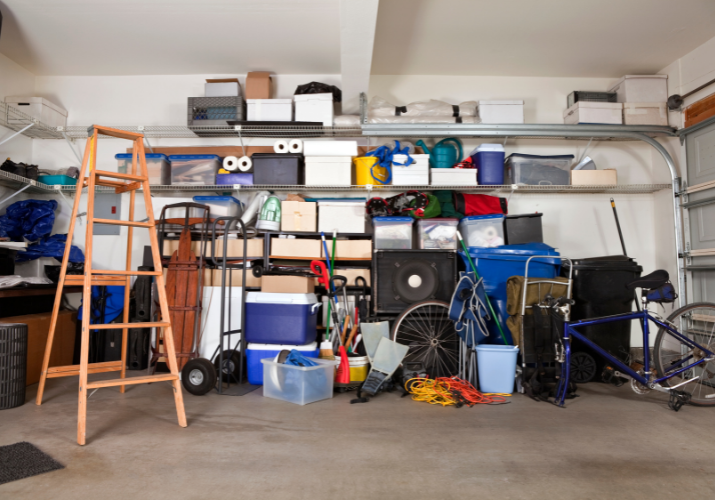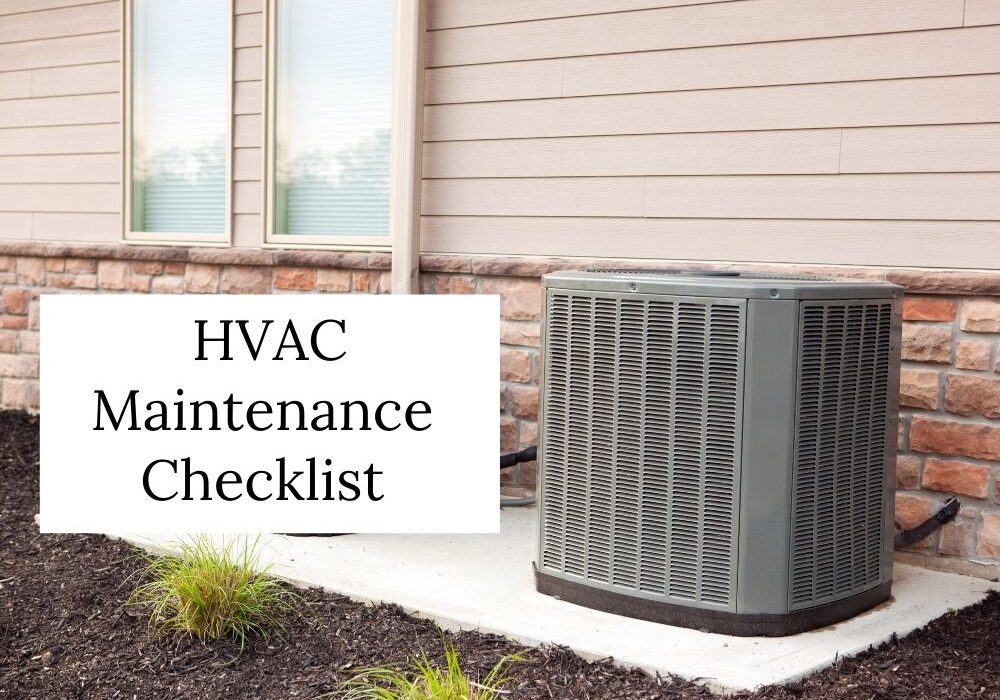DIY Pest Control – How To Keep Pests Out Of Your Home
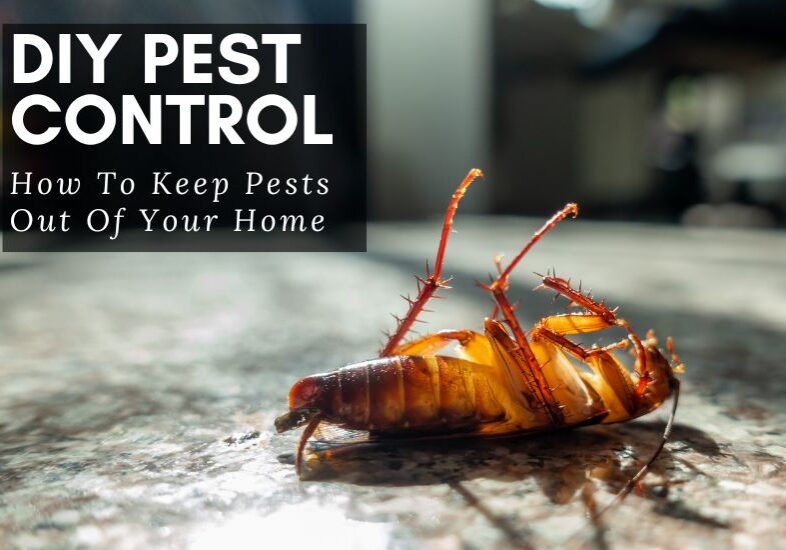
There’s almost nothing worse than having a pest problem in your home. They can get into your food and clothes, spread germs, and, worst of all, cause a lot of stress. But DIY pest control can effectively keep your home pest-free without spending a lot of money.
Plus, keeping the pests out can be much easier than removing them once they’ve gotten in. That’s why it can be good to start by doing some basic prevention techniques to stop them from getting into your home in the first place.
How Do Pests Get Into Your House?
Unfortunately, there are many different ways that different pests can get into your house. Here are all the things you should check.
Cracks and crevices are one of the most common ways pests can get into your home, which can be found around window frames, doors, vents, pipes, and other spaces between two surfaces.
Like cracks, air gaps can be found in many places around your home, giving pests easy access. You can find these anywhere the weather stripping has become worn, such as the garage door or front door, holes in the walls, or even in places where the house has shifted and created a gap that should be sealed.
If you find any cracks or air gaps during a home inspection, it is best to close them off as best you can. Because a pest can get through even the smallest of places.
Another way pests will commonly find their way into your home is through open doors and windows. So, do your best to keep these closed or install a screen. If you go this route, make sure there are no air gaps.
Can I Do Pest Control On My Own?
Any homeowner can do their own pest control. Especially since a lot of pest control has nothing to do with spraying harmful chemicals in your home and is instead about doing home maintenance tasks that prevent pests from gaining entry to your home in the first place.
DIY Pest Control Checklist
Plug Gaps
It’s normal to find gaps in things like your siding, vents, foundation, and so on due to the natural settling of your home. But this is also a great way for pests to get in. So, to block access, take a look around and plug up any gaps or cracks you find.
Some common ways you can do this include using mesh, steel wool, or caulking.
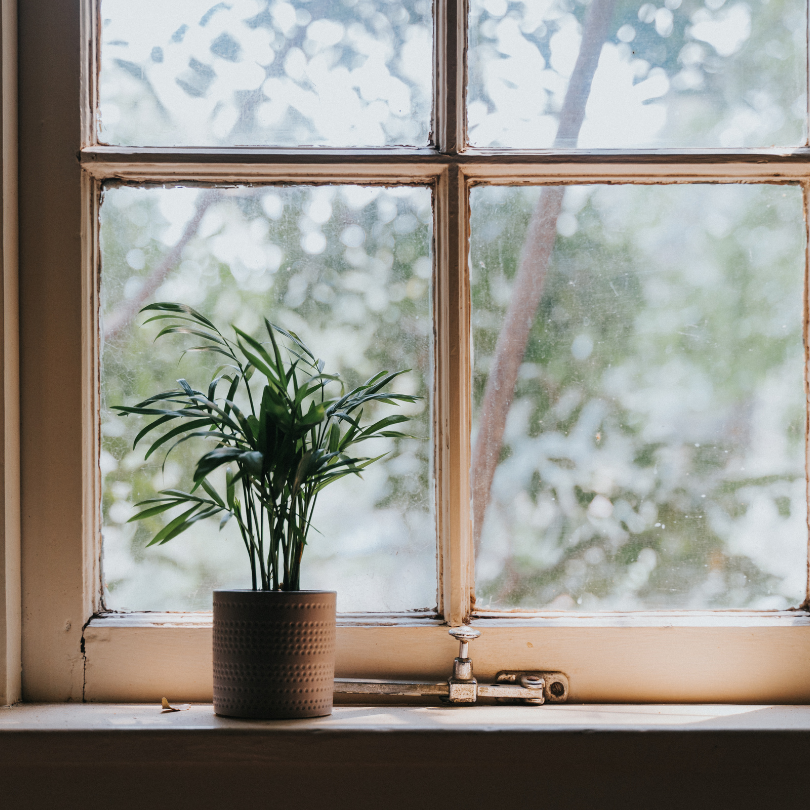
Seal Air Gaps In Windows & Doors
If you have any air gaps around the frame of your windows or doors, you will also want to seal these. The best way to do this is by using caulking.
And if the air gaps result from weather stripping that has worn out or come loose, you can replace them with new strips.
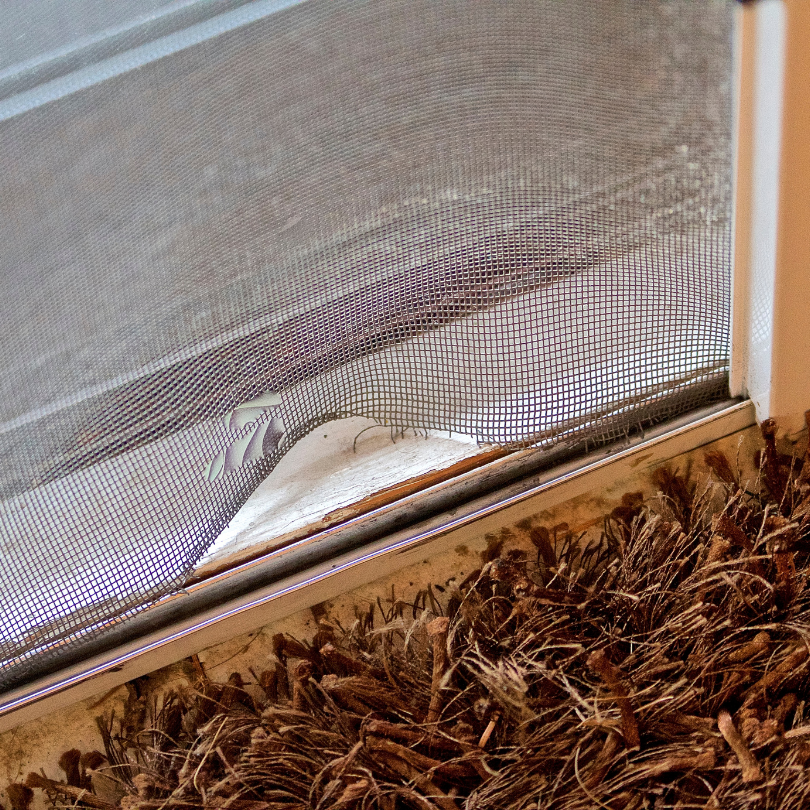
Inspect Screens For Damage
Screens are great for keeping pests out, but if there’s any damage, you might as well not have them. So make sure to do a quick inspection of both your window and door screens.
Set Up Dehumidifier
Many pests love a humid environment, so setting up a dehumidifier in your home can help deter them. Consider setting up a couple throughout your home, or at least in the areas where pests seem to be coming in the most.
DIY Pest Control Sprays
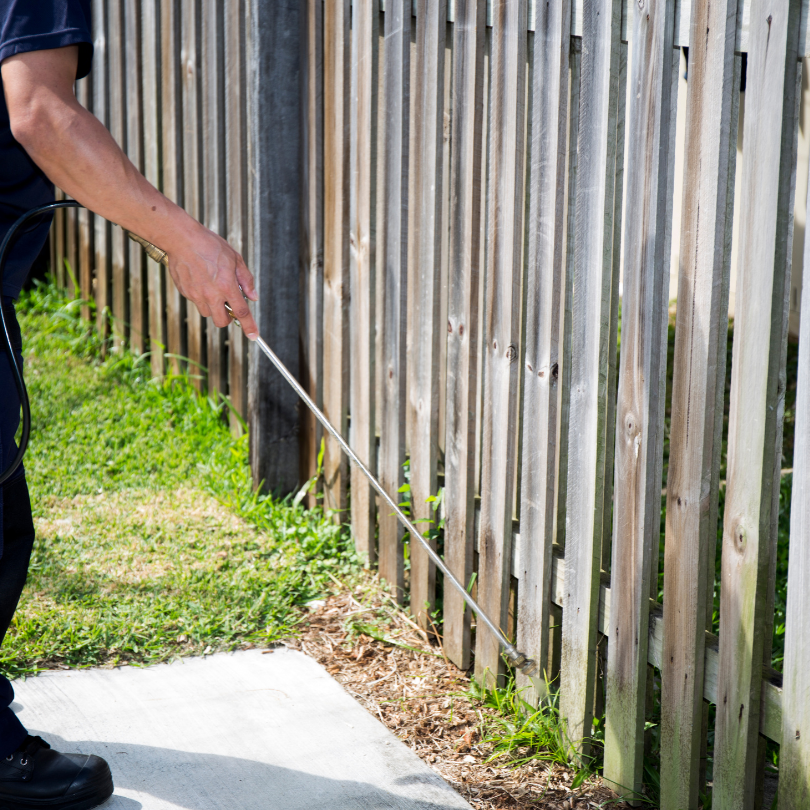
DIY pest control sprays are another great way to keep pests out of your home. These DIY sprays are made using natural ingredients like vinegar and essential oils. You can also customize these DIY sprays for the specific pest you’re trying to get rid of.
For example, if you have an ant problem, a DIY spray made with vinegar and peppermint oil can help keep them at bay. Or, if you’re dealing with spiders, a DIY spray made with lavender oil and water can help repel them.
The best part about DIY pest control sprays is that they’re safe for children and pets, and most of the ingredients used in these DIY recipes can be found in your kitchen.
Store Pet Food
If you have pets in your home, properly storing pet food can be helpful. This is because the smell of it can attract unwanted pests into your home. One way you can do this is by storing their food in a sealed bag or container. You can also keep the food dishes as clean as possible to reduce the smell in your home.
Keep Your Home Clean
Keeping your home clean can also be a great way to keep pests at bay. This includes:
- keeping your pantry clean;
- cleaning behind your fridge, stove, etc.;
- vacuuming your floors and carpets regularly;
- wiping down surfaces where you cook food;
- doing dishes regularly.
If you don’t have a regular deep cleaning routine for your home, you might find this 10-part deep cleaning checklist helpful.
Spray The Exterior Of Your Home With DIY Bug Killer
Finally, make it a part of your routine to spray the outside of your home with DIY bug killer. This can help reduce the number of pests in your backyard, which can, in turn, reduce the number of pests that make their way into your home.
What Are The Best DIY Pest Control Products?
The best DIY pest control products are the ones that work for your specific situation and keep you, your family, and your home safe.
For general DIY sprays, things like essential oils, such as peppermint, eucalyptus, or citronella, can help to repel pests from your home. DIY sprays made with equal parts vinegar and water can also help to keep them away. For tougher DIY pest control, like bedbugs, you may need to resort to stronger methods like diatomaceous earth or rubbing alcohol.
You can also utilize traps for your DIY pest control solutions. They make them for mice, rats, spiders, fruit flies, and more.
Overall, the best DIY solutions are the ones that keep your home safe and clean while also getting rid of the pests you are dealing with.
DIY Pest Control Ideas – Type Of Pest
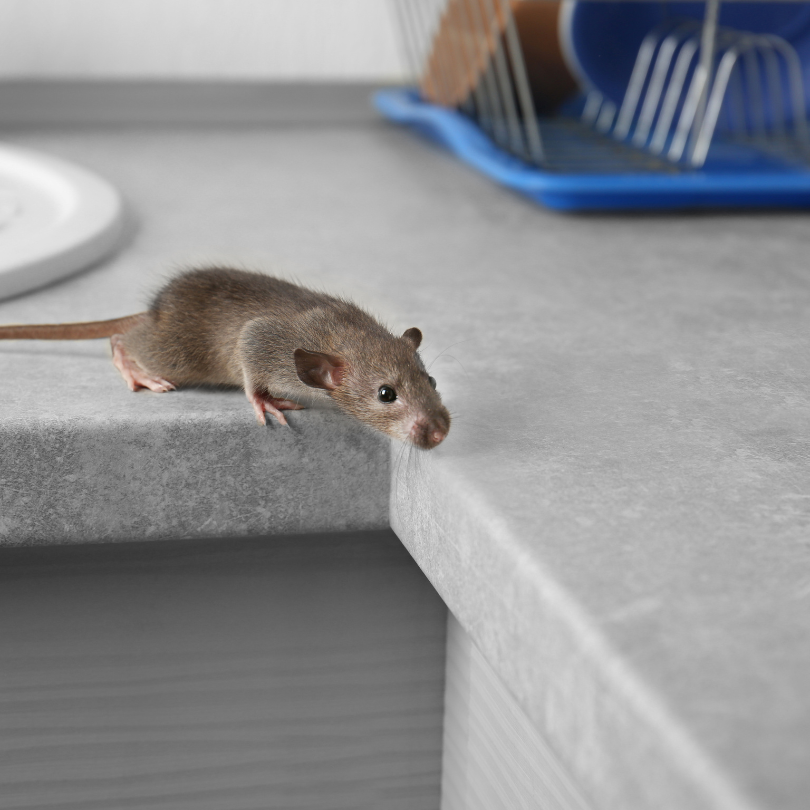
Mice & Rats
If you’re dealing with a mouse or rat problem, you’ll want to do everything you can to get rid of them quickly. These particular pests are prone to carrying many germs and diseases you don’t want in your home.
Start by covering up or filling in any holes, cracks, or air gaps in your home that they can use as entry points. And don’t be fooled by the size. Even the smallest of cracks can give them a way in.
You’ll also want to consider setting out mouse or rat traps. These can help quickly get rid of any already in your home.
Lastly, you can use a DIY pest control spray of equal parts ammonia and water. You can spray this outside your home, near any cracks or gaps, and even inside your home. Just be sure to keep it away from surfaces that might be damaged by the ammonia.
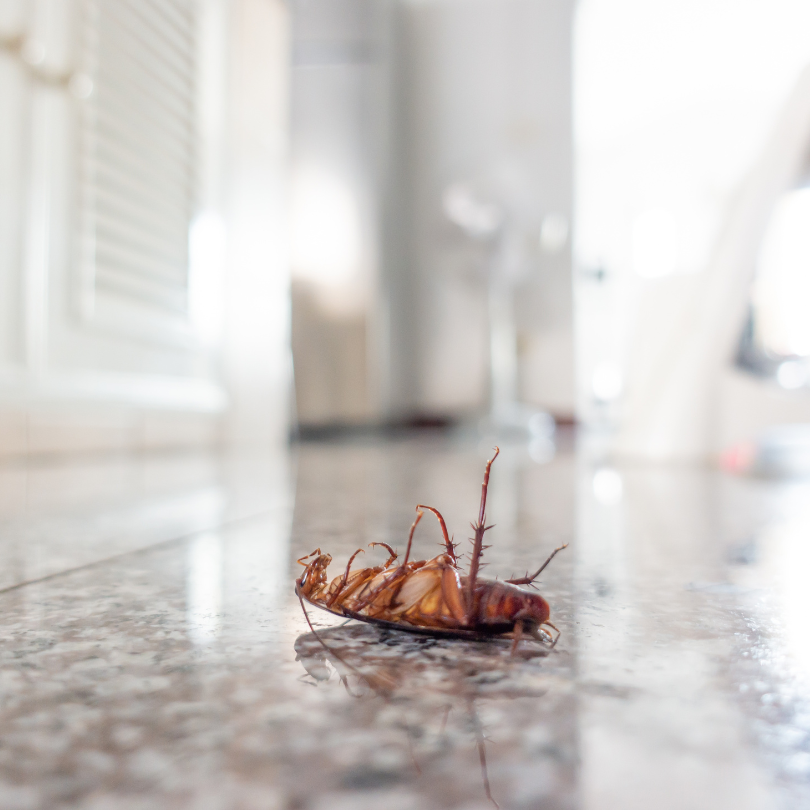
Cockroaches
Cockroaches can be one of the most difficult pests to get rid of. To make it easier, you’ll want to start by sealing off any food sources that may attract them to your home. This includes pet food, crumbs, and even open containers of sugar or flour.
You’ll also want to deep clean behind and under appliances like the fridge and stove where they tend to hide out.
You can also try DIY pest control sprays made with essential oils like peppermint, eucalyptus, or citronella to help repel them from your home.
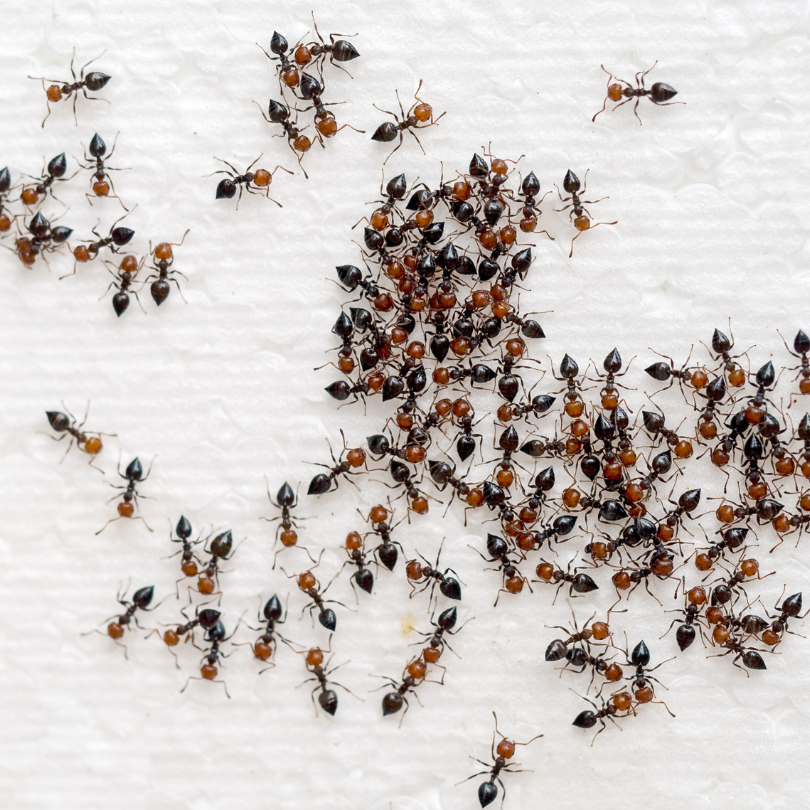
Ants
Ants are another of the most common pests people find in their homes. To keep them away, you’ll want to start by sealing up any cracks or holes they may be using as entry points into your home.
You can also try DIY pest control sprays with equal vinegar and water. This combination will help repel ants while leaving your home smelling fresh. And since these ingredients are food-safe, you can use them to wipe down your counters, mop your floors, and even spray them around any food sources in your home. Doing this can help keep those pesky ants out.
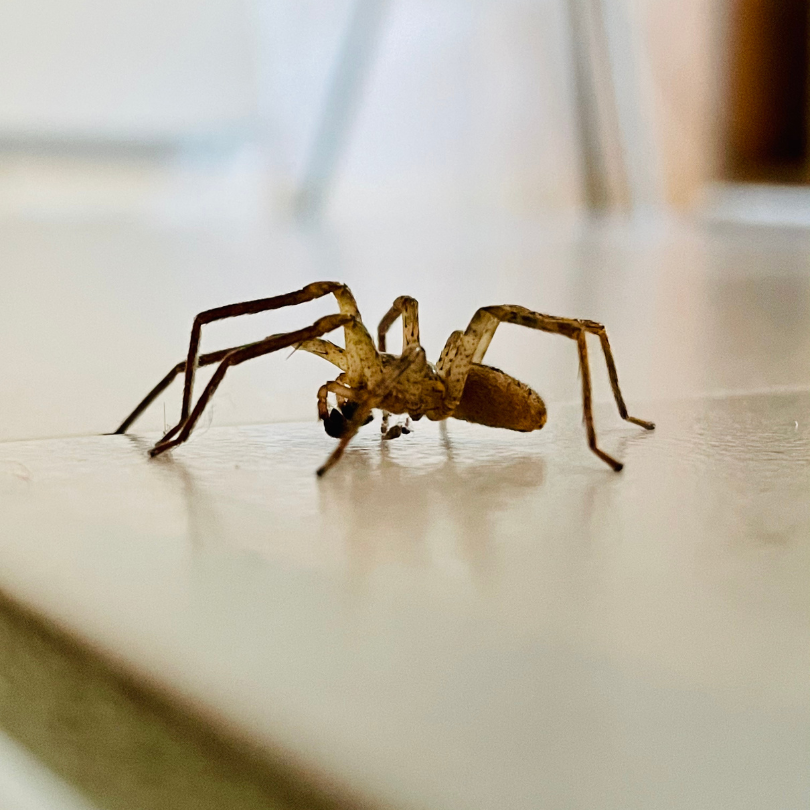
Spiders
Spiders are another common household pest that can be removed with simple DIY pest control.
You can first try spraying peppermint essential oil around the baseboards and corners of your home. This can help to deter spiders from entering your home or make it uncomfortable for them to stay.
You should also vacuum regularly, remove any webs you see, and seal off any cracks that may be letting them in.
Bed Bugs
Bed bugs can be notoriously difficult to get rid of, but you can try a few DIY pest control methods to get rid of these pesky pests.
The first common method is using diatomaceous, a naturally occurring substance safe for home use. It works by drying out the bedbugs on contact. You can sprinkle it around your bed or other areas where you may have seen bedbugs.
Another common method is to use rubbing alcohol. You can spray this directly onto bedbugs, baseboards, etc., to kill them on contact.
It will also be helpful to clean everything that has come into contact with bedbugs thoroughly. This means washing all your clothes, bedding, etc., in hot water and putting them in the dryer on the hottest cycle possible. You should also vacuum and steam clean the area around your bed, closet, vents, and baseboards.
Raccoons
Lastly, if you are having an issue with raccoons, the best thing you can do is seal up any possible entry points they might be using to get into your home and remove any potential food sources from your property. This includes pet food, garbage, and bird feeders.
And if you have an outdoor shed or garage, you’ll want to secure it with a latch and ensure all potential entrances are blocked off.

When To Call Pest Control Experts
While you can use a DIY method to prevent pests from getting into your home or to treat small infestations, some pest infestations require help from a commercial pest control company. These companies will have experience dealing with pests, be able to provide you with treatment plans and give you peace of mind that the problem will be taken care of properly.
Some invasive pests, like bed bugs or termites, are incredibly difficult to eliminate. So, professional pest control services or a professional exterminator can be the best option.
These DIY pest control ideas can help you keep the pests away without resorting to harsh and potentially dangerous chemicals in your home. Just make sure you are doing DIY pest control as part of your regular home maintenance, and you should be able to keep your home pest-free.


